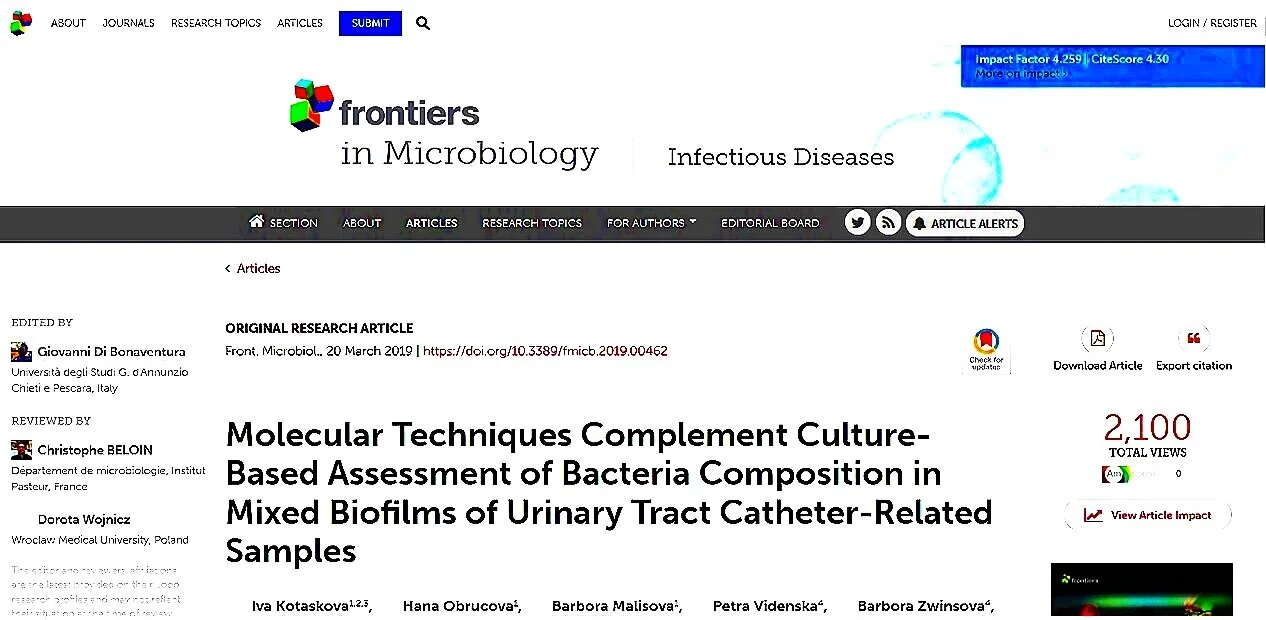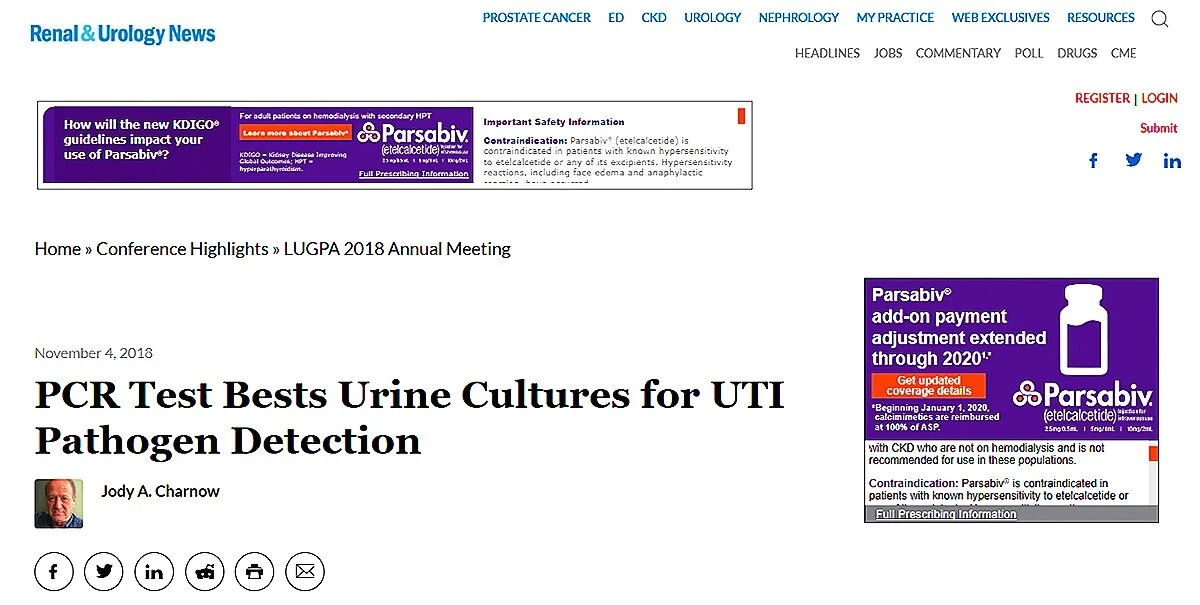urinary tract infection testing (UTI)
It's quite common for UTIs to be misdiagnosed as routine urine cultures have a high false negative rate. Polymerase chain reaction (PCR) testing finds and copies DNA in a process called amplification. PCR is a powerful tool for identifying both the infectious agent as well as the presence of antibiotic resistance genes. Data shows that UTIs are increasing due to multidrug-resistant pathogens that are spreading globally from the over-prescription and widespread use of broad-spectrum antibiotic therapy instead of a more controlled approach which matches the optimal antibiotics to specific pathogens.
molecular testing or polymerase chain reaction (PCR)
detects organisms that cultures miss
PCR is over 90% accurate while culture testing ranges around 60-80%
identifies more representatives and indicates more positive samples
significantly improves patient outcomes through it's accuracy and speed
non-inferior to urine culture for detection and identification of bacteria
can also be used as a supplemental test along with the routine culture
top benefits for PCR testing
rapid detection: only 5 hours from sample to result
allows for treatment and diagnoses that are narrowly matched to appropriate antibiotic choices
increased specificity and sensitivity: over 25% increased accuracy in pathogen detection compared to culture methods
case studies

